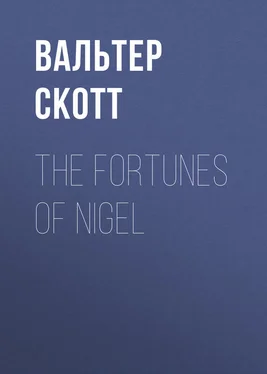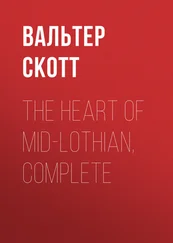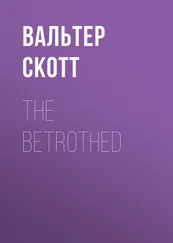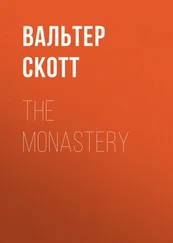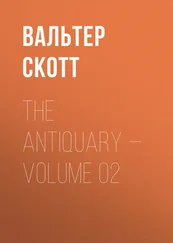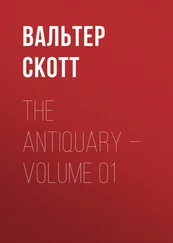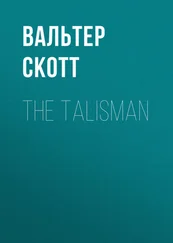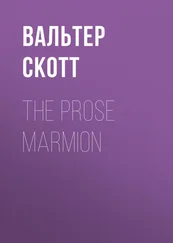Вальтер Скотт - The Fortunes of Nigel
Здесь есть возможность читать онлайн «Вальтер Скотт - The Fortunes of Nigel» — ознакомительный отрывок электронной книги совершенно бесплатно, а после прочтения отрывка купить полную версию. В некоторых случаях можно слушать аудио, скачать через торрент в формате fb2 и присутствует краткое содержание. Жанр: foreign_antique, foreign_prose, Альтернативная история, на английском языке. Описание произведения, (предисловие) а так же отзывы посетителей доступны на портале библиотеки ЛибКат.
- Название:The Fortunes of Nigel
- Автор:
- Жанр:
- Год:неизвестен
- ISBN:нет данных
- Рейтинг книги:4 / 5. Голосов: 1
-
Избранное:Добавить в избранное
- Отзывы:
-
Ваша оценка:
- 80
- 1
- 2
- 3
- 4
- 5
The Fortunes of Nigel: краткое содержание, описание и аннотация
Предлагаем к чтению аннотацию, описание, краткое содержание или предисловие (зависит от того, что написал сам автор книги «The Fortunes of Nigel»). Если вы не нашли необходимую информацию о книге — напишите в комментариях, мы постараемся отыскать её.
The Fortunes of Nigel — читать онлайн ознакомительный отрывок
Ниже представлен текст книги, разбитый по страницам. Система сохранения места последней прочитанной страницы, позволяет с удобством читать онлайн бесплатно книгу «The Fortunes of Nigel», без необходимости каждый раз заново искать на чём Вы остановились. Поставьте закладку, и сможете в любой момент перейти на страницу, на которой закончили чтение.
Интервал:
Закладка:
“Right,” said Heriot; “rather than you fled not, they would themselves furnish wings for you to fly withal.”
“I will to him this instant,” said the incensed youth, “and tell him my mind of his baseness.”
“Under your favour,” said Heriot, detaining him, “you shall not do so. By a quarrel you would become the ruin of me your informer; and though I would venture half my shop to do your lordship a service, I think you would hardly wish me to come by damage, when it can be of no service to you.”
The word shop sounded harshly in the ear of the young nobleman, who replied hastily – “Damage, sir? – so far am I from wishing you to incur damage, that I would to Heaven you would cease your fruitless offers of serving one whom there is no chance of ultimately assisting!”
“Leave me alone for that,” said the citizen: “you have now erred as far on the bow-hand. Permit me to take this Supplication – I will have it suitably engrossed, and take my own time (and it shall be an early one) for placing it, with more prudence, I trust, than that used by your follower, in the king’s hand – I will almost answer for his taking up the matter as you would have him – but should he fail to do so, even then I will not give up the good cause.”
“Sir,” said the young nobleman, “your speech is so friendly, and my own state so helpless, that I know not how to refuse your kind proffer, even while I blush to accept it at the hands of a stranger.”
“We are, I trust, no longer such,” said the goldsmith; “and for my guerdon, when my mediation proves successful, and your fortunes are re-established, you shall order your first cupboard of plate from George Heriot.”
“You would have a bad paymaster, Master Heriot,” said Lord Nigel.
“I do not fear that,” replied the goldsmith; “and I am glad to see you smile, my lord – methinks it makes you look still more like the good old lord your father; and it emboldens me, besides, to bring out a small request – that you would take a homely dinner with me to-morrow. I lodge hard by in Lombard Street. For the cheer, my lord, a mess of white broth, a fat capon well larded, a dish of beef collops for auld Scotland’s sake, and it may be a cup of right old wine, that was barrelled before Scotland and England were one nation – Then for company, one or two of our own loving countrymen – and maybe my housewife may find out a bonny Scots lass or so.”
“I would accept your courtesy, Master Heriot,” said Nigel, “but I hear the city ladies of London like to see a man gallant – I would not like to let down a Scottish nobleman in their ideas, as doubtless you have said the best of our poor country, and I rather lack the means of bravery for the present.”
“My lord, your frankness leads me a step farther,” said Master George. “I – I owed your father some monies; and – nay, if your lordship looks at me so fixedly, I shall never tell my story – and, to speak plainly, for I never could carry a lie well through in my life – it is most fitting, that, to solicit this matter properly, your lordship should go to Court in a manner beseeming your quality. I am a goldsmith, and live by lending money as well as by selling plate. I am ambitious to put an hundred pounds to be at interest in your hands, till your affairs are settled.”
“And if they are never favourably settled?” said Nigel.
“Then, my lord,” returned the citizen, “the miscarriage of such a sum will be of little consequence to me, compared with other subjects of regret.”
“Master Heriot,” said the Lord Nigel, “your favour is generously offered, and shall be frankly accepted. I must presume that you see your way through this business, though I hardly do; for I think you would be grieved to add any fresh burden to me, by persuading me to incur debts which I am not likely to discharge. I will therefore take your money, under the hope and trust that you will enable me to repay you punctually.”
“I will convince you, my lord,” said the goldsmith, “that I mean to deal with you as a creditor from whom I expect payment; and therefore, you shall, with your own good pleasure, sign an acknowledgment for these monies, and an obligation to content and repay me.”
He then took from his girdle his writing materials, and, writing a few lines to the purport he expressed, pulled out a small bag of gold from a side-pouch under his cloak, and, observing that it should contain an hundred pounds, proceeded to tell out the contents very methodically upon the table. Nigel Olifaunt could not help intimating that this was an unnecessary ceremonial, and that he would take the bag of gold on the word of his obliging creditor; but this was repugnant to the old man’s forms of transacting business.
“Bear with me,” he said, “my good lord, – we citizens are a wary and thrifty generation; and I should lose my good name for ever within the toll of Paul’s, were I to grant quittance, or take acknowledgment, without bringing the money to actual tale. I think it be right now – and, body of me,” he said, looking out at the window, “yonder come my boys with my mule; for I must Westward Hoe. Put your monies aside, my lord; it is not well to be seen with such goldfinches chirping about one in the lodgings of London. I think the lock of your casket be indifferent good; if not, I can serve you at an easy rate with one that has held thousands; – it was the good old Sir Faithful Frugal’s; – his spendthrift son sold the shell when he had eaten the kernel – and there is the end of a city-fortune.”
“I hope yours will make a better termination, Master Heriot,” said the Lord Nigel.
“I hope it will, my lord,” said the old man, with a smile; “but,” to use honest John Bunyan’s phrase – ‘therewithal the water stood in his eyes,’ “it has pleased God to try me with the loss of two children; and for one adopted shild who ives – Ah! woe is me! and well-a-day! – But I am patient and thankful; and for the wealth God has sent me, it shall not want inheritors while there are orphan lads in Auld Reekie. – I wish you good-morrow, my lord.”
“One orphan has cause to thank you already,” said Nigel, as he attended him to the door of his chamber, where, resisting further escort, the old citizen made his escape.
As, in going downstairs, he passed the shop where Dame Christie stood becking, he made civil inquiries after her husband. The dame of course regretted his absence; but he was down, she said, at Deptford, to settle with a Dutch ship-master.
“Our way of business, sir,” she said, “takes him much from home, and my husband must be the slave of every tarry jacket that wants but a pound of oakum.”
“All business must be minded, dame,” said the goldsmith. “Make my remembrances – George Heriot, of Lombard Street’s remembrances – to your goodman. I have dealt with him – he is just and punctual – true to time and engagements; – be kind to your noble guest, and see he wants nothing. Though it be his pleasure at present to lie private and retired, there be those that care for him, and I have a charge to see him supplied; so that you may let me know by your husband, my good dame, how my lord is, and whether he wants aught.”
“And so he is a real lord after all?” said the good dame. “I am sure I always thought he looked like one. But why does he not go to Parliament, then?”
“He will, dame,” answered Heriot, “to the Parliament of Scotland, which is his own country.”
“Oh! he is but a Scots lord, then,” said the good dame; “and that’s the thing makes him ashamed to take the title, as they say.”
“Let him not hear you say so, dame,” replied the citizen.
“Who, I, sir?” answered she; “no such matter in my thought, sir. Scot or English, he is at any rate a likely man, and a civil man; and rather than he should want any thing, I would wait upon him myself, and come as far as Lombard Street to wait upon your worship too.”
Читать дальшеИнтервал:
Закладка:
Похожие книги на «The Fortunes of Nigel»
Представляем Вашему вниманию похожие книги на «The Fortunes of Nigel» списком для выбора. Мы отобрали схожую по названию и смыслу литературу в надежде предоставить читателям больше вариантов отыскать новые, интересные, ещё непрочитанные произведения.
Обсуждение, отзывы о книге «The Fortunes of Nigel» и просто собственные мнения читателей. Оставьте ваши комментарии, напишите, что Вы думаете о произведении, его смысле или главных героях. Укажите что конкретно понравилось, а что нет, и почему Вы так считаете.
